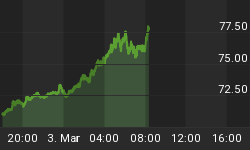Why read: To test the contemporaneous views I expressed four years ago, to observe similarities and differences then and now, and to determine if you agree with my current views.
Commentary then: On April 12, 2009 I commented as follows:
An article today titled 'Preparing for the Dollar's Next Down Cycle' begins with the author saying "One thing I learned early on in my investing and trading career was that I can't trust analysts or the news media! I learned that not only are these guys not as knowledgeable as they should be, but that they also don't alert everyone to the fact that things are changing until well after the fact".
The author attributes this to "analysts and the financial news media (being) horrible investors", and because "analysts work for firms that are biased".
The author then says that he relies on commodities "like gold, copper, oil, steel, lumber, and even a commodities index...the CRB index (which holds a basket of commonly used goods)" as an indicator for buying stocks and currencies.
His rationale for focusing on commodities as an economic and market indicator is that he believes "when an economy is turning around, companies will need to use these raw commodities to make their products in order to expand their corporate earnings", and that "when an economy comes out of a deflationary (or even disinflationary) period back into a typical inflationary period, you will see it first in the rise of commodity prices".
He then says he thinks (in April 2009) the "The Worst is Over, yet (there are) Still Some Bumps Left" since oil, copper, gold, lumber, etc. have all started to perk up and have broken their downtrends.
While I think the author has it 'generally right' with respect to analysts and the news media, I that he goes 'far to far' by making such broad statements. I think there are many thoughtful media writers and quite a number of good and careful analysts. That analysts may have inherent conflict of interest issues depending on who employ them is something that needs to be weighed when considering their advice. I also think the author's analysis is very shallow with respect to what he sees as a 'fact' that many commodities have now (in April 2009) 'broken their downtrends'. Thus, while I think the author of the referenced article may be directionally and conceptually correct with respect to commodities and commodity prices as indicators of economic and stock market prospects, I think he is a little, and perhaps more than a little, early in his conclusion that 'The Worst is Over'.
A principal reason I have spent a substantive part of my time in the past two years developing the StockResearchPortal.com is because I believe intelligent investors will be more careful and doing more of their own investment research going forward, because I believe in the long term future of precious metals as a safe haven, and because I believe investments in carefully researched commodity stocks will do well going forward.
Commentary now: In the past three plus years I have become more focused on what I perceive to be a significant shift in the financial markets over the past decade from being far more trading markets, and far less investment markets, than they historically have been. Given the evolution of high frequency algorithmic trading, and its instantaneous reaction to news and events, if anything it strikes me that commodities prices in theory ought to be even better short-term indicators of economic and stock market prospects today than they were in April 2009.
That said, I struggle to apply that same conclusion to longer-term economic and stock market prospects today, as I continue today to believe there is a significant dichotomy between current financial markets performance and longer-term world economic conditions.
















